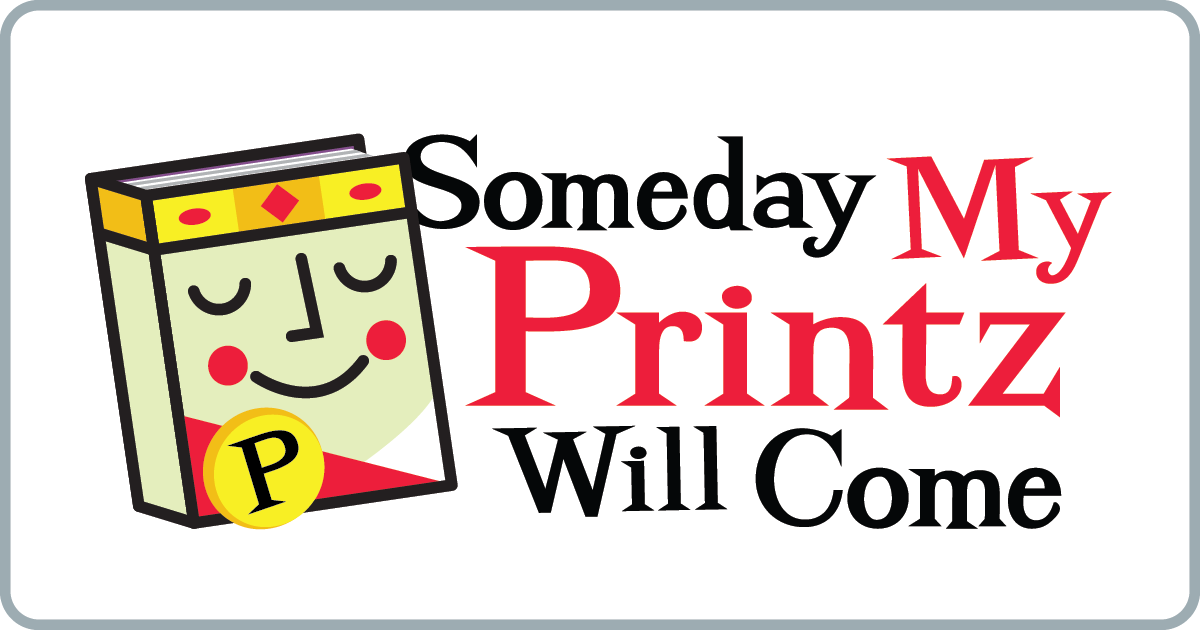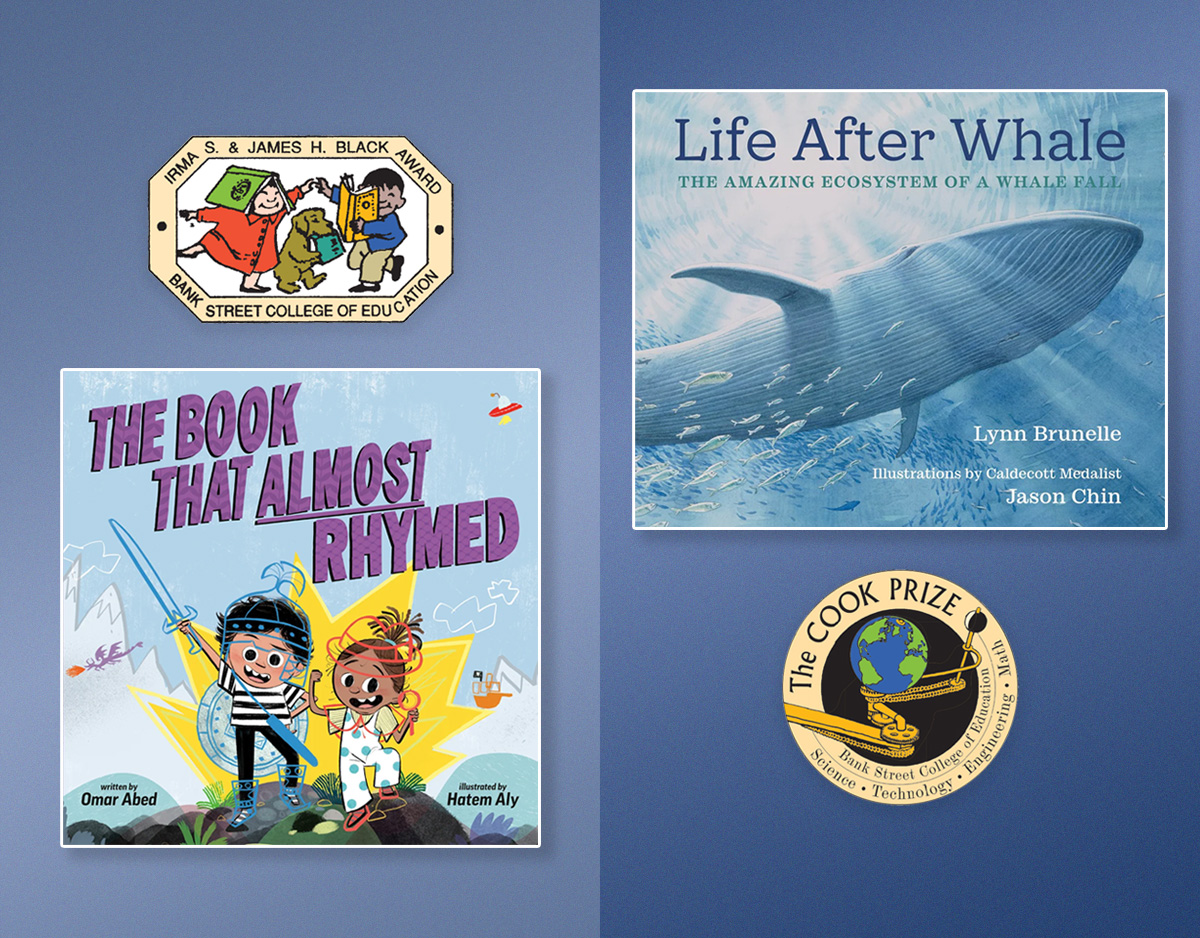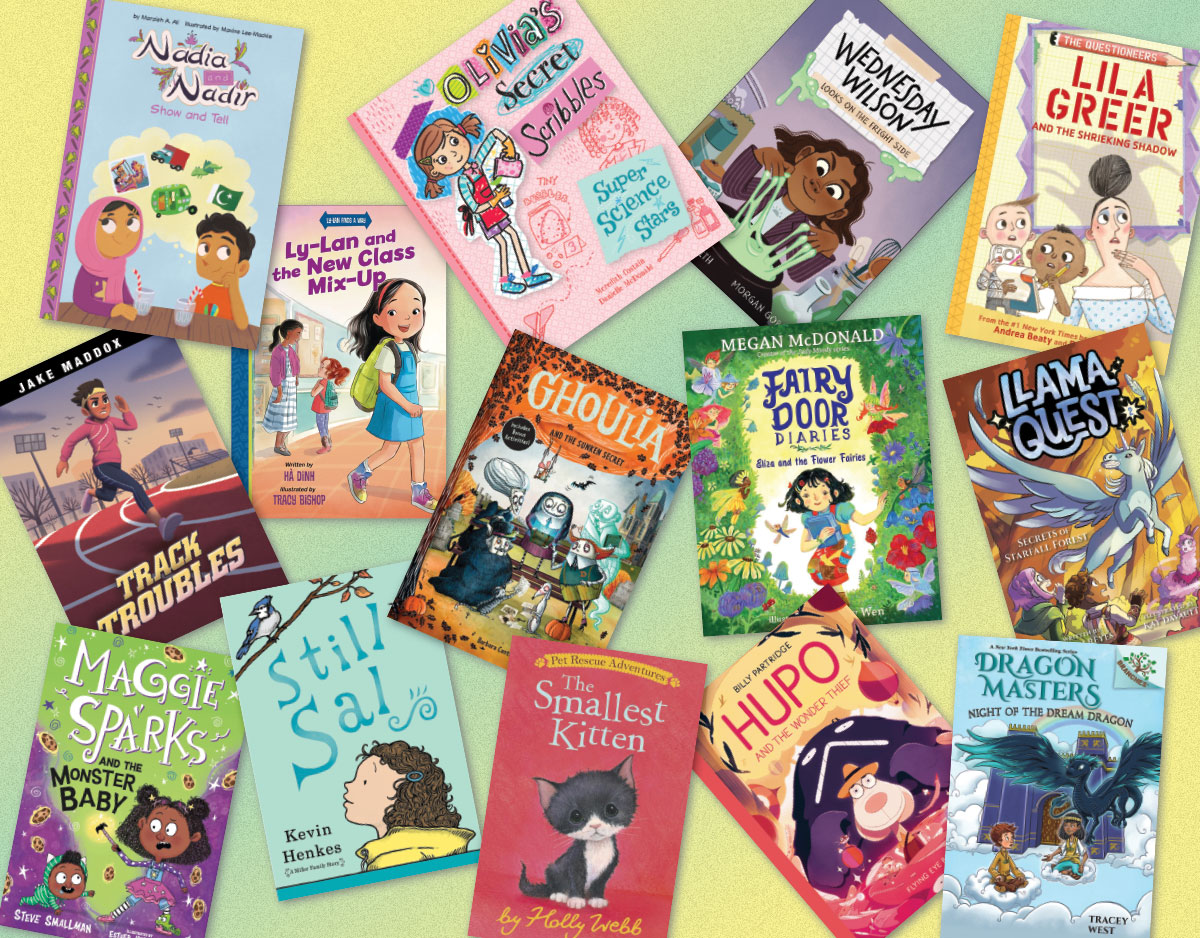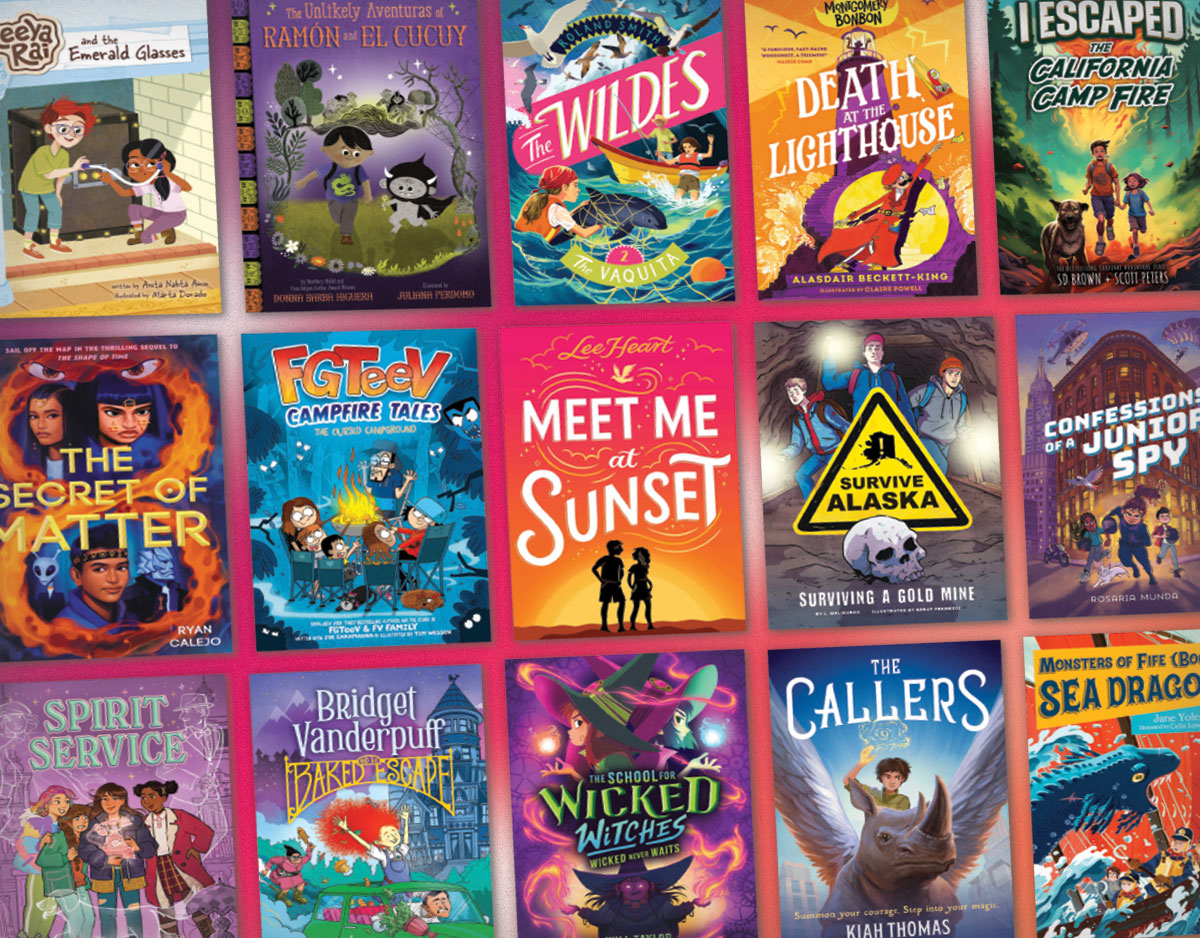SCROLL DOWN TO READ THE POST
What Are YOU Carrying?
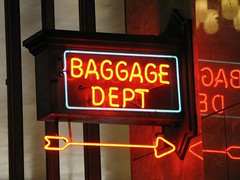
Reading is an immensely personal experience. Except when it isn’t.
This conundrum is at the heart of reading for a committee, or list, or award. We talk about this a lot. Today, we will talk (in full paragraphs!) here, so that everyone knows what’s going on in our heads and can chime in.
Karyn: A (short) while back, in her review of Everybody Sees the Ants, Sarah talked about a wall she had hit (Lucky’s dad’s age) that caused a crack in her windshield (we’re gonna beat that metaphor to death by the time January rolls around, so consider yourself warned).
ADVERTISEMENT
ADVERTISEMENT
There is no such thing as an objective reader. It’s just not possible. We bring ourselves to the books we read.
We bring:
- cultural knowledge.
- Geographic knowledge (please don’t try to ride the “underground subway” that goes to Flushing; it doesn’t exist outside of books).
- Every book we’ve ever read before (ever notice how the more you read the fewer books blow you away?)
- biases, assumptions, peeves, and emotional baggage: in short, everything that makes us who we are.
Sometimes the subjective part of the equation makes a great book suck. Even as the objective part is noting the language and the immense craft and oh! the characterization, a reader can get stuck on some small detail. A store on the wrong street. A pivotal scene set in a dark parking lot that you (ok, I) just parked in yesterday, and it’s got street lights all around so there is no way that thing in the book could have happened there. (In case you wondered, I get really hung up on incorrect geography, much as Liz mentioned in the Ants comment stream. Tosses me right out of the book, every time.) Or it’s something that hardly registers for most readers, like slang, or poor fashion sense, or the age of the parents — it might not even be incorrect for another reader, but for you, with your baggage, it sets up that itch, and then the windshield cracks.
And that’s not even talking about serious baggage: material that works like a trigger, and reading it is so painful that you can’t, because in that case the writing quality doesn’t even matter.
On the other hand, sometimes the subjective part of the reading experience turns a mediocre book into a personal favorite. A commercial rom-com that should be forgettable happens to have a scene just like that one time? In high school? And suddenly it’s the most uproariously funny book ever, or it feels so real, but really what’s funny/true/sad/special is the memory of those awkward, angsty moments in our own pasts. Sometimes a book that is probably not actually all that good (come on, we can admit it) hits us right there, in the solar plexus, WHAM!, and we defend it against all comers, even as our friends and colleagues are all, “No, really! It’s just not good.” This can be particularly difficult in committee discussions, when a defense for a book amounts to “it’s just like my own experience” or “but it really happened this way” — just because a thing is true, or possible, or happened once to someone doesn’t mean it feels true to readers, and when we’re talking about selecting an award winner, it needs to work for readers as a whole, not just me and my baggage.
Or maybe you just have a visceral response, and you might love a book or hate it but can’t explain why, because it’s just chemistry, or the fact that the sun was shining for the first time all week when you read it, or you were having a really bad day: something that might not even be about the book itself, but about the circumstances of reading.
So, ok, no book exists in a vacuum. But reading as our own complete selves, baggage and all, is a luxury when we are reading professionally. When it’s for collection development and reader’s advisory, we can acknowledge our baggage and move on to a different book. But for the Printz, we have to rise above. How does that work?
ADVERTISEMENT
ADVERTISEMENT
Sarah: One way it works is that we are used to reading with multiple hats (and of course we’re not the first to point this out; this post just came through our twitter stream) — we manage to read professionally for collection development and reader’s advisory just fine. Through this practice, we learn to differentiate when we’re responding with our adult reader identity and when we’re wearing our teen hats (Karyn’s mentioned hers before; mine is a carefully worn Cardinals baseball hat). We know when we’re reading with our librarian hats on (those, I’m convinced, are witch hats as Terry Pratchett describes, I think in one of the Tiffany Aching books). While it can be tricky to sort through those various levels of reaction, doing so is really great practice for committee work, which is (in some ways) another level of reading. Committee work is not just about serving your own community, which you probably know well and are able to read for without much mental gyration. It’s about serving the entire country.
With committee work, when we sense that we’re responding naked and un-hatted, we have the luxury of asking our fellow committee members.
I firmly and fully believe that listening is the heart of librarianship. We have to listen to our patrons, to the people we serve, so we’re pretty good at it. But when we’re on a committee — any committee, not just Printz — we have to be ready to hear what our colleagues have to say. Creating a list for a national audience, or bestowing an award on a title for the whole country, means that we have to look beyond our own experiences, thoughts, or prejudices and that we must remember that it’s not just about the teens we work with every day.
For like a million reasons that we don’t need to get into here, I have what can only be described as an entire personal set of baggage about ideas about parenting and what motherhood looks like. When a book triggers that reaction (which, obviously, Ants did, with its innocent use of the year 1951), it’s my responsibility to ask the committee — in this case, anyone reading this — for your reaction. And then it’s my responsibility to listen, to really pay attention, to what you have to say. After hearing the responses to what I said about Ants, I need to go back and look at it again.
Karyn: In the end, committee work is part gut response, part objective reading, and lots of committee input.
Sarah: And yes, I know there’s the maxim about committee work being responsible for the camel (the one referenced here), but I don’t buy it. Committee work is what makes sure we wear our witch hats. It’s what keeps us responsible, what keeps us open-minded, what allows us to best serve the committee’s charge. Going through the committee process is necessary.
And why all the camel hate, anyway?
Filed under: Process
About Sarah Couri
Sarah Couri is a librarian at Grace Church School's High School Division, and has served on a number of YALSA committees, including Quick Picks, Great Graphic Novels, and (most pertinently!) the 2011 Printz Committee. Her opinions do not reflect the attitudes or opinions of SLJ, GCS, YALSA, or any other institutions with which she is affiliated. Find her on Twitter @scouri or e-mail her at scouri35 at gmail dot com.
ADVERTISEMENT
SLJ Blog Network
Name That LEGO Book Cover! (#63)
“If you like my storytelling, this is your jam.” Jason Reynolds Goes All Audio with “Soundtrack”
Band Nerd | Revieew
Writing Queer Characters with Warmth, Empathy, and Inclusive Joy, a guest post by Lauren Magaziner
The Classroom Bookshelf is Moving
Pably Cartaya visits The Yarn
ADVERTISEMENT
ADVERTISEMENT

